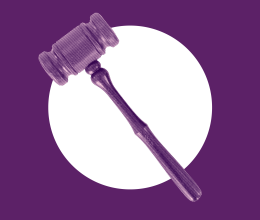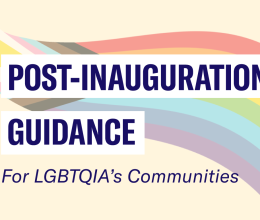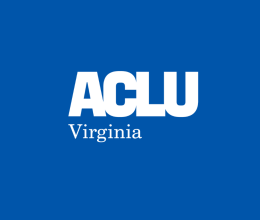
Today, the ACLU of Virginia submitted its comment to the Virginia Regulatory Town Hall and sent a letter to Virginia Department of Education Superintendent Jillian Balow to oppose the proposed model policies concerning instructional materials with sexually explicit content.
"Educators and librarians cannot do their job if they are constantly being required to justify their curricula and instruction to parents who may hold diametrically opposing viewpoints," stated the letter. "Nor was the public education system put in place to present a homogenized viewpoint. The education of young Virginians will be disrupted by efforts to use classrooms to support a political agenda —a space of control rather than a thriving ground for free speech and freedom of thought."
The ACLU-VA argued that:
1. The proposed model policies will likely target curriculum by and/or that includes LGBTQ people and Black, Indigenous, and other communities of color.
“Sexually explicit content” as defined in the Virginia code casts a wide net on what materials on which it falls. For example, the definition of “sexually explicit content” includes “sexual conduct” which is further defined to include "homosexuality.”3 Such a broad definition is likely to lead teachers, librarians, and school administrators to restrict access to instructional materials that includes or are written by LGBTQ people. The impact would not only be LGBTQ students being treated as “other” and pushed into the shadows but removing such a broad category of literature detracts from the richness and diversity of our nation and potentially prevents LGBTQ youth from accessing life-saving information about themselves. Seeing yourself reflected in instructional materials is not “sexually explicit”, it is reality and one to which all students, including LGBTQ students, must have access.
Our concern extends to materials by or including the experiences of Black, Indigenous, and other people of color (BIPOC). The definition of “sexually explicit content” does not include race or racism. However, we have unfortunately witnessed several school districts in Virginia target books for removal that address race and racism and have sought to do so by reducing rich and complicated stories to mere sentences void of context.
For example, three school districts, including Virginia Beach, sought to ban “The Bluest Eye” by Nobel laureate Toni Morrison for its depiction of racism and sexual abuse.4 The vagueness of the standard invites this kind of suppression of disfavored voices. Embedded in the story’s setting and time frame, these stories help students understand how BIPOC bodies are objectified and used by an oppressor. These stories happened and still happen today. What valuable lessons will be missed if students only have access to sanitized versions of reality, deprived of real people’s lives and experiences?
As drafted, the proposed model policies codify and force all Virginia school districts to adopt this anti-free speech practice and will only exacerbate an alarming trend toward classroom censorship, all while denying students the opportunity to be inspired by stories of people from all walks of life trying to live authentically in school curriculum.
2. The proposed model policies will lead to classroom censorship.
The proposed model policies raise serious logistical concerns and will add substantial and unnecessary labor to educators across the Commonwealth at a time when there’s an alarming shortage of teachers. The vague direction in the policies may potentially result in censorship as teachers and librarians seek to minimize the risk of being out of compliance with an adopted policy.
The intent of the proposed model policies was to provide a uniform process for school districts to identify and notify parents of content that falls under the newly created “sexually explicit content” list. However, section three of the proposed model policies provides little to no guidance, instead leaving the development of an identification process entirely to school leadership.5 This will result in a patchwork of identification and notification policies that could vary from school to school, even those in the same district.
Denying our children access to diverse viewpoints and experiences will only undermine their potential. Ignorance leads to fear. Fear leads to prejudice, discrimination, and violence. The role of education is to instill in students a sense of curiosity and cultivate understanding and compassion. These foundations will go a long way in growing a new generation of brave, courageous people who value diversity, equity, and inclusion. It is for this and the reasons above that ACLUVA opposes the proposed model policies.
You can read our full letter below.


